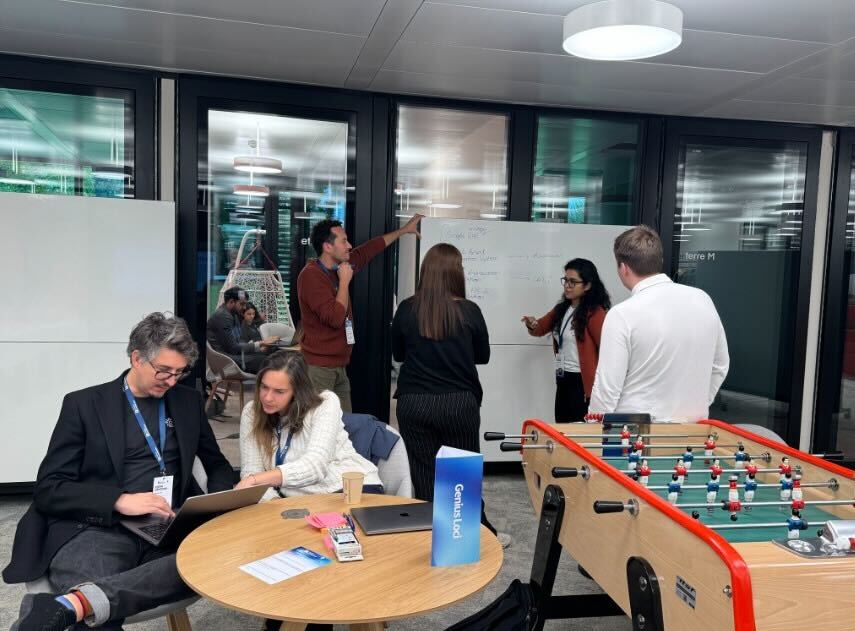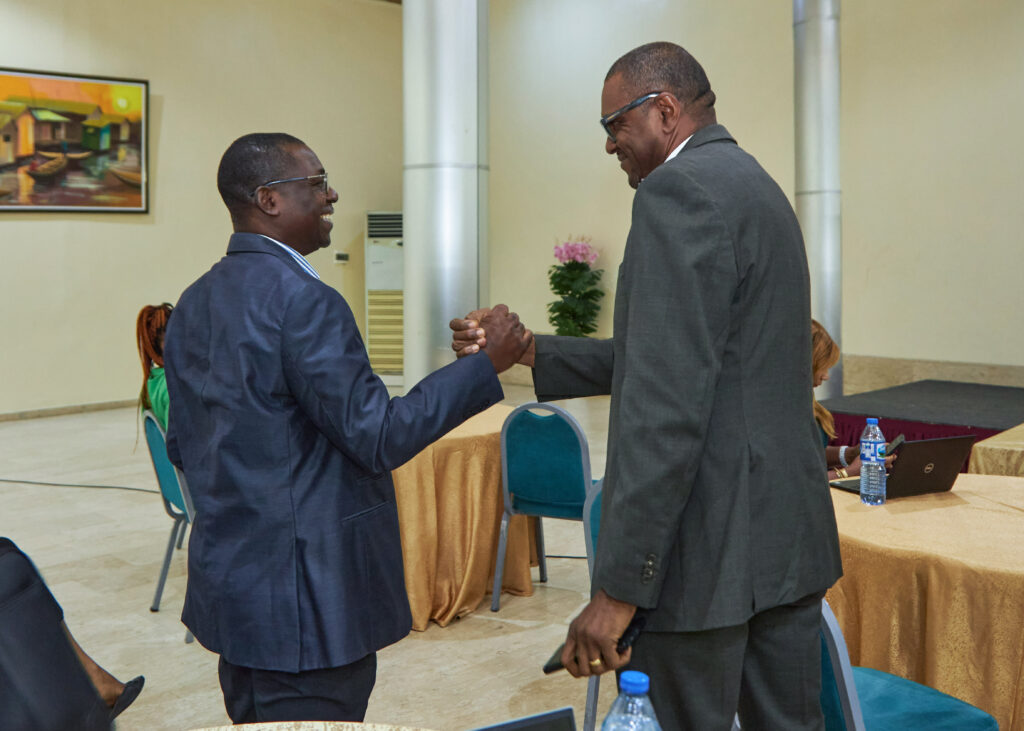
Local knowledge and experience are at the heart of the City Cancer Challenge (C/Can) approach to technical cooperation. Activities are co-designed with the city to prioritise and leverage local know-how by strengthening alliances between local professionals and institutions, and by creating opportunities for sharing good practices.
In this first Inside Story of the series, we will take you through examples from our cities with a focus on Porto Alegre, Brazil, and share some of the lessons we have learned since we started our operations back in 2017.
Engaging local stakeholders
When a city joins C/Can, one of the first steps in the process is a comprehensive stakeholder mapping to help identify and engage all relevant local stakeholders from public, private and civil society sectors. This includes the city health leadership, regional/national government representatives, cancer care providers, health insurers, academia, scientific societies, and patient organisations, among others, to ensure a fully inclusive and participatory process.
Based on this mapping, a multisectoral governance body, known as the City Executive Committee (CEC), is created. Composed of approximately 15 high-level decision-makers, the CEC ensures that all relevant stakeholders across sectors are appropriately informed and engaged; it advocates for and fosters political commitment; ensures that the city process is aligned with existing local and national initiatives; supports a robust, data-driven process; and provides guidance. You can find out more about our CEC members in C/Can’s latest annual report.
One of the CEC’s first responsibilities is to convene a multi-disciplinary Technical Committee with expertise in the quality, management and delivery of cancer care. This group of approximately 20 local experts will be responsible for convening a wider network of healthcare professionals representative of the main cancer care providers across the city that will :
- Support a city-wide data collection process on cancer care capacity;
- and analyse the results together as part of approximately 20 inter-institutional, topic-specific working groups covering the care continuum including pathology, nuclear medicine, medical oncology, cancer surgery, palliative care etc.
“This network of local experts becomes the driving force behind the C/Can process as they review data collected to determine the city’s key needs, develop priority actions to address gaps, and form targeted project teams that later design, implement and monitor locally-led solutions.” Diogo de Sousa Neves, Senior Manager, Technical Assistance and Partnerships, C/Can
The case of Porto Alegre: spotlight on improving pathology quality
During the needs assessment process in Porto Alegre (Brazil), one of the key gaps identified by the city was the quality of pathology services. Based on the data and insights generated during this process the CEC prioritised the need to improve the quality of pathology laboratories, including traceability of specimens, standardisation of tests and reporting, by developing and implementing a Quality Control Programme and ensuring that city regulations are updated.
“In addition to engaging pathologists from different institutions, the approach in Porto Alegre went a step further to also engage policy experts from the public sector. Combining a multi-institutional and multisectoral approach has helped to fill knowledge gaps, created broader understanding of the most critical issues, and created an expanded group of local advocates that are informed, and empowered to ensure city-wide uptake of the solutions.” Bruno Goulart, Project Coordinator, Laboratory Assistance Coordinator, Porto Alegre City Hall
In particular, this network of experts has been crucial in mobilizing key decision makers and laboratory representatives throughout the process, and aligning efforts with local regulations by connecting with the local health surveillance agency. During a series of consensus-building meetings, local experts worked on the draft of a Quality Control Manual, and organised an online city consultation to ensure the engagement of all relevant professionals in the city. This multi institutional and multisectoral approach is already generating tangible benefits in Porto Alegre:
- The local surveillance health agency has already updated its Inspection Report to include pathology quality criteria, signalling that the endorsement process for the Pathology Quality Manual may also be accelerated as a result of C/Can Engaging health leaders from the municipality early on.
- The city will now begin work on the revision of a local regulation 03/2006 that institutes good practices for clinical analysis laboratories, clinical pathology and collection points based in Porto Alegre.
- The involvement of such a diverse and wide range of experts has also enhanced the quality of the Pathology Quality Control Manual.
“The document developed can be considered as a reference for other national and Latin American pathology services”. Dr Beatriz Hornburg, Centre of Anatomical Pathology Diagnosis (CEDAP) and Pathologist sponsored by the American Society for Clinical Pathology
Forging connections across institutions and sectors for quality cancer care: lessons learned
The experience in Porto Alegre is not unique; this inclusive and locally-led approach is also being applied across the C/Can network, and for other project types including multidisciplinary care and radiotherapy.
Beyond improving the quality, acceptance and uptake of technical cooperation resources, this approach is also having catalytic effects that are having a wider impact on the cities’ health systems response to cancer care by:
- Bringing together experts in environments where professional societies may be non-existent or under-resourced.
-
- Improving communications across public and private institutions, increasing knowledge and trust, and contributing to the standardisation of practices. In Yangon, C/Can’s “quality of cancer care” project brings together local experts (across the continuum of cancer care from diagnosis to end-of-life care services) from both public, private and military hospitals in Yangon that have together developed a resolution on multidisciplinary team care practice and resource appropriate guidelines on breast and invasive cervical cancers.
- Providing a sense of community, particularly among specialities that may not necessarily come together in other circumstances. In Tbilisi, patient groups collaborated with local C/Can stakeholders including health professionals from different specialities to tackle cancer gaps that were triggered by the COVID-19 pandemic. A project was developed to provide accurate and reliable information to cancer patients, their families, and caregivers.
- Catalysing collaboration and knowledge exchange among specialities, departments, public and private institutions in oftentimes fragmented health systems. In Kumasi, Ghana, the C/Can process brought together public and private institutions to learn about the multidisciplinary team management of cancer cases at the Komfo Anokye Teaching Hospital, with health professionals given the opportunity to connect virtually or in person to present their own cases.
- Fostering local ownership and therefore long term sustainability of solutions
We would like to take this opportunity to thank and recognise the hard work and dedication of all the health professionals, patients, individuals, organisations and communities that have been working behind scenes in our cities from the very beginning: these are the true agents of change; people working together to translate words into actions.
Stay tuned for the next story in the series – Consensus For Action – where we will explore C/Can´s methodology to deliver technical cooperation in cities.





